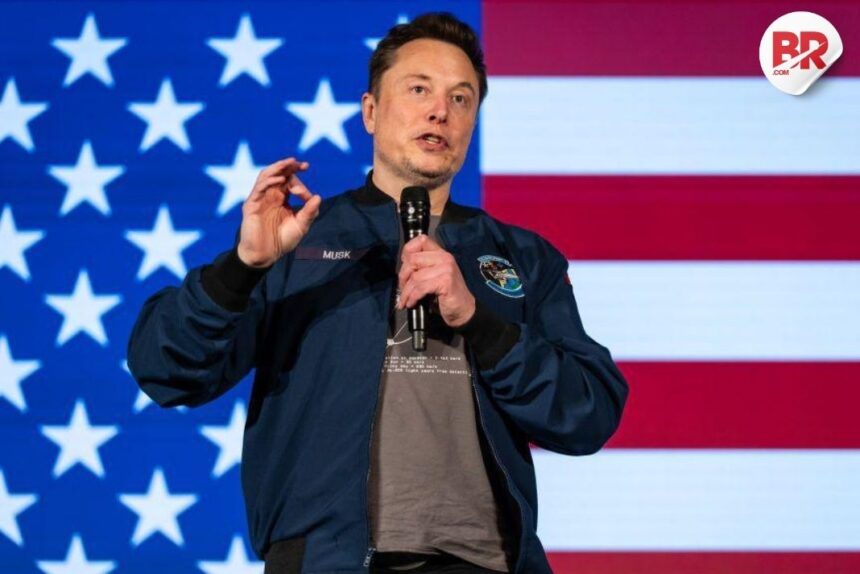
Elon Musk Tariff Clash: A Battle Between Free Trade and Protectionism
Elon Musk, the CEO of Tesla and a known adviser to Donald Trump, is once again at the center of political and economic headlines. Over the weekend, Musk made a direct appeal to Trump, urging him to reverse the newly announced U.S. tariffs. His efforts, however, were unsuccessful.
The decision to impose a 10% baseline tariff on all U.S. imports—and even higher duties on certain countries—has stirred strong reactions. And Musk, a strong supporter of free trade, isn’t holding back.

Elon Musk Tariff Clash: Pushing Back on Trump’s Trade Plan
At a recent conference held by Italy’s right-wing League Party, Musk made his stance clear. He called for zero tariffs between the U.S. and Europe, arguing that free trade benefits both sides. This wasn’t the first time Musk has criticized Trump’s approach to trade. In the past, he called U.S. auto tariffs “damaging” to Tesla’s global plans.
This clash has exposed a deeper rift between Trump’s protectionist vision and business leaders like Musk, who thrive on open markets.
Elon Musk Tariff Clash: How It’s Hurting Tesla
The timing of the tariff announcement couldn’t have been worse for Tesla. The company is already facing a tough quarter. Sales have dropped sharply, and investors are growing uneasy. Tesla’s stock price closed at $233.29 on Monday, down a staggering 42% for the year.
Part of the backlash is tied to Musk’s political involvement. His role in Trump’s “Department of Government Efficiency” has drawn criticism. Many believe it’s hurting Tesla’s image, especially among younger, progressive buyers.
Also Read: Elon Musk’s Idea for a US-EU Zero-Tariff Trade Zone: A New Path for Global Trade?
Elon Musk Tariff Clash: The Bigger Economic Risk
Economists warn that these tariffs won’t just hit big companies—they could hit your wallet, too.
New import taxes could raise prices on everyday goods. Some experts say the average American family could end up paying “thousands of dollars more” each year. This goes against Trump’s repeated promises to lower living costs for working families.
Worse, higher prices could reignite inflation. That, in turn, raises the risk of a new recession—a nightmare scenario as the country heads toward the 2026 elections.
Elon Musk Tariff Clash: Silence from the Top
Despite the growing concern, neither the White House nor Elon Musk have publicly responded to the news. Their silence only adds to the uncertainty.
Behind the scenes, the tension is clear. Musk is known for using his influence to shape policy, but this time, his appeal seems to have fallen on deaf ears.
Also Read: Trade Wars + Recession = Oil Crash? Goldman Warns Market Shift
Elon Musk Tariff Clash: A Sign of What’s Coming?
This story is about more than just tariffs. It’s a sign of growing friction between politics and business. While Trump pushes for protectionism to please his base, leaders like Musk are sounding alarms.
The bigger question is: will voters care more about patriotic trade policies or the rising costs in their daily lives?
With Tesla struggling and the economy showing signs of strain, this clash could shape debates all the way to the 2026 elections.
The Elon Musk tariff clash is a dramatic example of two powerful forces colliding—one pushing for economic nationalism, the other fighting for global trade. As the world watches, the stakes are clear: the future of Tesla, the direction of U.S. trade policy, and the financial well-being of millions of Americans.
This is not just a battle of ideas—it’s a real-world conflict that could shape what we pay, how we live, and who we vote for next.
Also Read: Musk Slams Europe’s Red Tape, Urges Trump to Drop Tariffs












